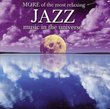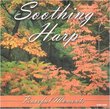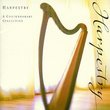| All Artists: Johannes Brahms, Idil Biret Title: Brahms: Piano Sonatas Nos. 1 & 2 Members Wishing: 0 Total Copies: 0 Label: Naxos Original Release Date: 1/1/1991 Re-Release Date: 2/15/1994 Genre: Classical Styles: Forms & Genres, Sonatas, Historical Periods, Romantic (c.1820-1910) Number of Discs: 1 SwapaCD Credits: 1 UPC: 730099535120 |
Search - Johannes Brahms, Idil Biret :: Brahms: Piano Sonatas Nos. 1 & 2
 | Johannes Brahms, Idil Biret Brahms: Piano Sonatas Nos. 1 & 2 Genre: Classical
|
Larger Image |
CD DetailsSimilarly Requested CDs
|
CD ReviewsSuperb L. Sarro | Brazil | 01/30/2005 (5 out of 5 stars) "Brahms has always been one of Biret's favorite composers. Despite her love for his music, it's her extraordinary musical comprehension that makes her one of the strongest interpreter of his piano music. Besides her sensibility, her sharp technique contributes for the immense success of this disc. She has a very special way for playing those massive chords while not making them sound pedantic. The sonatas here are stylish, colorful, firm in passages of bravura, intimate in lyrical sections, filled with a deeply satisfying contrasting dynamic range. The passionate result of the 1st movement of the 2nd sonata is a delight. I didn't have luck trying to listen to this sonata before. Some pianists (including some world wide famous names, such as Richter) were unable to display the outpouring of passion of this early work, leading to boring performances. Now I know that the 2nd sonata, though written before the 1st, is of equal strength of the other: a quite enjoyable genial piece for an early work." Surprisingly good works of Brahms' youth Hexameron | 01/11/2007 (4 out of 5 stars) "Having recently discovered Brahms's music through the Naxos Brahms Four Hand Piano music series, I've been infected with a yearning for more. I'm pleased to announce that Brahms's talent and compositional prowess has always shined in his works. After hearing this disc, I feel his Op. 1 and everything thereafter has possessed only pure quality. Although these two works are admittedly inferior to his later Variations and Intermezzi, they are astoundingly melodious and harmonically attractive. We have to keep in mind that Brahms wrote these in 1852-3... when he was just about 20 years old! Of course other composers have had prodigious periods of composing in their adolescence; Mozart, Mendelssohn, and Liszt being an example. But these two works were considered highly by both the Schumann's and Liszt. R. Schumann described this pair of sonatas as "veiled symphonies in sound."
I've obviously never heard these two sonatas before and am only aware of one other recording by Richter. However, I've encountered Idil Biret before with her Chopin and Rachmaninov. Her Chopin series had its highlights (although I detest her staccato and overwhelming rubato in the Nocturnes). She seems best suited to virtuosic works where she can unleash her passion. In the lyrical sections she can still play beautifully, but as far as Brahms, I don't know if I'm hearing a stellar interpretation or not. Biret plays certain passages here with gusto. Frankly, she's a "banger" in these parts, which is fine and good. But I wonder how others would or should approach these works? They sound great under the quick and ferocious fingers of Biret, but how would they sound under the graceful touch of Brendel? I don't know, and I apologize if I can't answer this for those already familiar with the sonatas. Nonetheless, even if Biret's playing style is not appropriate for these works, she injects these sonatas with excitement, vigor, and passionate dynamics. If these sonatas require other performing attributes, it doesn't matter; she sustains an endless stream of energy and feeling, making these sonatas highly enjoyable. The first piano sonata Op. 1 is actually my least favorite sonata. Apparently Brahms wrote his Op. 2 first, but this first sonata in C major is not as impressive and compact as the second in F sharp minor. The first movement of the Op. 1 contains a classical Schubertian theme that contrasts with gentler Schumannesque moments. The motivic development here is outstanding for a 20 year old Brahms and his ambitious bravura passages are delightful. The Andante movement is the golden achievement, in my opinion. Essentially it is a melancholy theme and variations with some imaginative phrasing and beautiful reflections. The Scherzo and last movement revives the spirit of the first movement with gaiety and passion intermingled together. Both movements seem rhythmically and melodically cohesive. Overall, this is a decent piano sonata for a 20 year old. The second piano sonata is my favorite, though, and I think the most dramatic. Take the first movement: Lisztian splendor and Beethovenian majesty surge forth to create a passionate work that storms and sings. I find the melodic material in this movement much more interesting than the Op. 1. The second movement is also more profound and original, with some absolutely poignant moments. The descending figure that creeps slowly down the keyboard into the lower bass sounds so simple, but it really creates an amazing effect. The brief Scherzo movement is more attractive to me than the Op. 1 Scherzo. I know this is subjective since music touches us all differently, but I find the trio section here gorgeous. Lastly, the Finale, a 10 minute excursion, appeals with its Beethoven style and noble ideas. The whole work is a magnificent sonata and doubly impressive when Brahms' age is considered. Bottom line: Idil Biret meets the technical challenges of these works and shows off her enthusiasm for both the bravura and the lyrical sections. I can't compare her interpretations to any other pianist, but her execution is still fantastic. Musically, these are quite good, but will probably always be overshadowed by Brahms's later mature works. The Op. 2 sonata is a youthful masterpiece and I recommend this inexpensive recording to any pianophile or Brahms fan." |

 Track Listings (8) - Disc #1
Track Listings (8) - Disc #1








